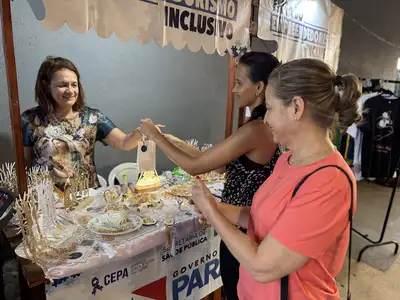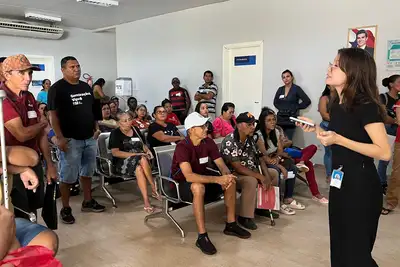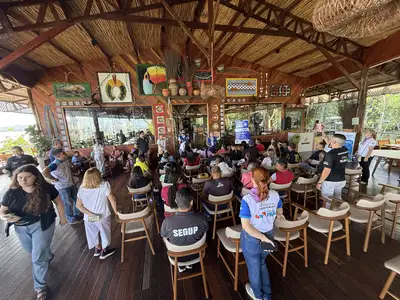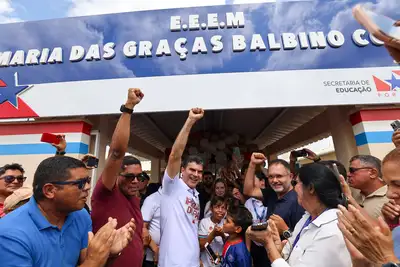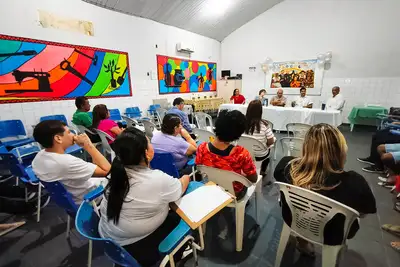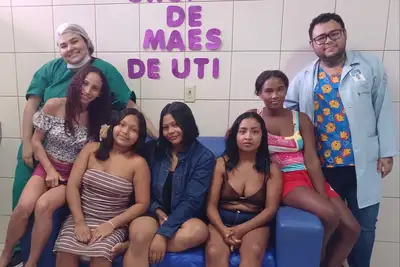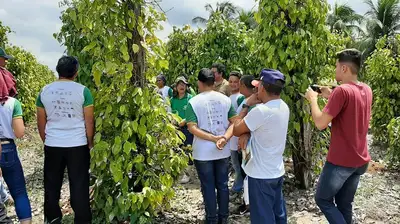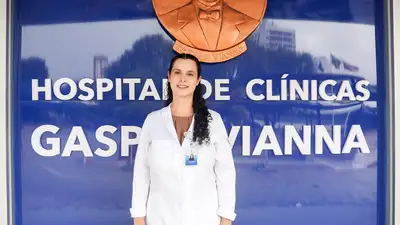In New York, Helder Barbalho highlights the delivery of Brazil's first Park of Bioeconomy and Innovation in Belém
The facility will be delivered in October as a milestone of the Pará Bioeconomy Plan and a reinforcement for the new forest economy
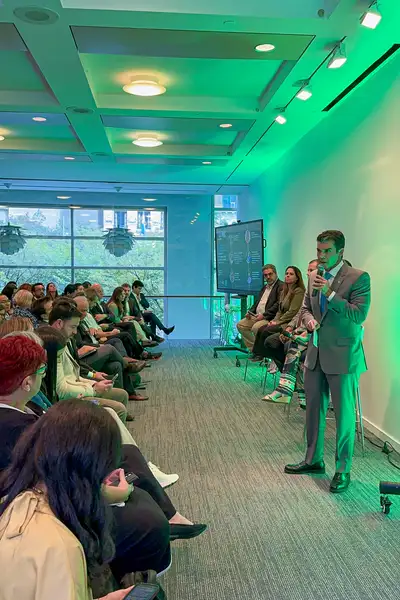
The governor of Pará, Helder Barbalho, announced this Monday (22), during Climate Week in New York, the delivery of the first Park of Bioeconomy and Innovation in the Amazon, also the first in Brazil. The space will be inaugurated in the first week of October, in Belém, and represents the main structuring action of the State Bioeconomy Plan, launched pioneeringly by the Government of Pará.
The announcement was made during the panel "Financing Ecological Transformation: Innovative Mechanisms and Lessons Learned from Brazil," promoted by the Brazil Coalition and the international organization The Nature Conservancy (TNC).
Highlighting the initiative, Helder Barbalho reinforced the State's commitment to building a sustainable economic model based on the appreciation of biodiversity.
"Pará believes strongly in bioeconomy and has been working to identify opportunities that can transform our biodiversity into a new economy. Therefore, we conceived the State Bioeconomy Plan and are already in the implementation phase. To give you an idea, the state government has already invested about R$ 2 billion in bioeconomy," he stated.
According to the governor, the new park will be a center for business, research, and innovation focused on the industrialization of forest products and the strengthening of sustainable production chains. "I invite everyone to get to know this structure that will be delivered soon and that marks a new cycle for the Amazon," he added.
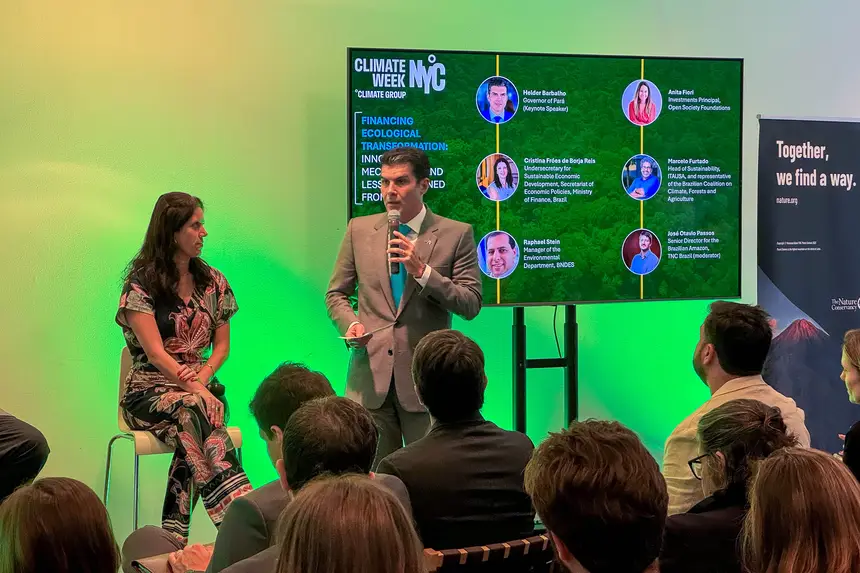
Sustainability with inclusion and social justice
The governor also emphasized that sustainability needs to be understood broadly, integrating environmental, economic, and social pillars.
"Sustainability needs to be environmental, economic, but above all, social. We need to take care of the trees and the peoples who live beneath their canopy. I call on everyone to join us in Belém at COP30, but more than that, to be with us in building the future of the forest, which involves the future of Pará," he declared.
The Secretary of State for Environment, Climate, and Sustainability, Raul Protázio Romão, highlighted that the new park represents the materialization of a commitment made internationally. "The Bioeconomy Park is a historic advancement. It is the structuring implementation of an action outlined in our Bioeconomy Plan, launched at COP27. We will arrive at COP30 with this delivery, which will strengthen the businesses of socio-bioeconomy, startups, and a range of opportunities that the Amazonian biodiversity offers," he stated.
Climate financing and regulatory innovation
Still during the panel, Helder Barbalho presented the State's strategies to leverage green investments and create conditions for the economic transition with low carbon emissions. The governor emphasized the importance of private sector involvement.
"It is up to the government to build the legal conditions, the regulatory framework, to ensure predictability and legal security. But it is up to the private initiative to implement the process. Only then will we move from a laboratory of good ideas to a scale compatible with the climate challenges and the opportunities of green businesses," he said.
Among the initiatives already underway, he mentioned the concession for forest restoration in the Environmental Protection Area (APA) Triunfo do Xingu, the first carried out by a subnational state in Brazil. The contract lasts for 40 years, foresees private investments of R$ 300 million, and the generation of two thousand green jobs.
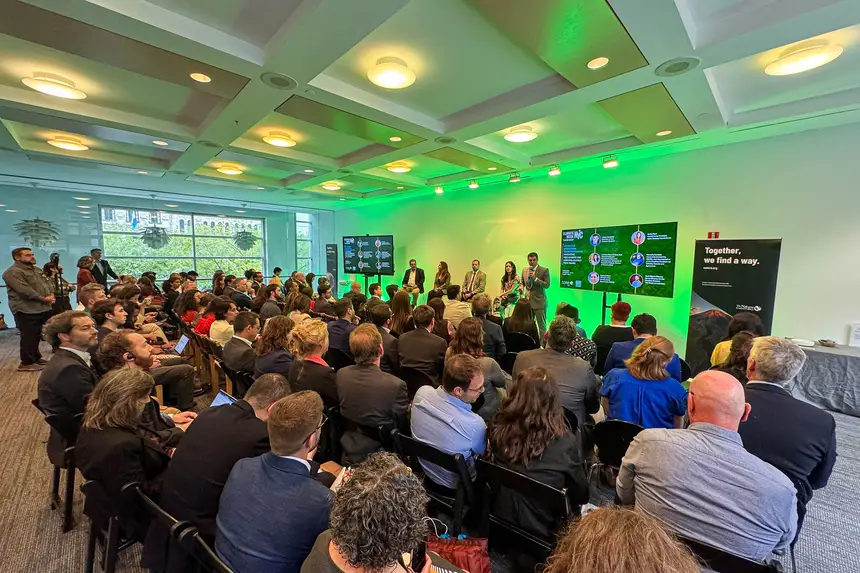
"This concession goes from seedling production to forest planting, promoting carbon capture and generating monetization. It is a concrete agenda for sustainable development," he pointed out.
Sustainable livestock and herd traceability
The governor also highlighted Pará's advances in modernizing livestock as part of the strategy to reduce emissions and combat deforestation. With the second-largest cattle herd in Brazil, with 26 million heads, the State is already implementing collective traceability and is now moving to a new level.
"We are working to ensure individual traceability of our entire herd by 2026. This is an essential step to consolidate Pará as a reference in low-emission livestock," he explained.
Helder reinforced that the State seeks to ensure that this transition occurs without burdening small producers. "We count on the partnership of the private initiative so that this action does not represent additional costs, especially for producers operating on properties of up to 100 hectares," he concluded.


